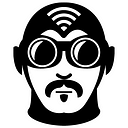Oh, what Elon strange trip it’s been. After months of top of the news wrangling, Elon Musk celebrated the purchase of the company he was essentially forced to buy with the tweet, “The bird is freed.” So why do I feel like our goose is cooked? Journalists make up a large proportion of Twitter’s most active users and work in the world’s most self-gazing profession, so you’ll be seeing nonstop, top-of-the-page headlines about each move Musk makes at Twitter — which already includes the predictable firing of top execs — so I’ll spare you the blow by blow.
Speaking of blow… In 1979, Victor Kiam appeared in a commercial for Remington shavers in which he proclaimed, “I liked the razor so much I bought the company.” That’s similar to the Musk/Twitter story, but Scarface is probably a closer analog. It was Michelle Pfeiffer’s Elvira Hancock who warned Al Pacino’s Tony Montana, “Don’t get high on your own supply.” Tony didn’t listen. Neither did Elon. Musk is a Twitter addict. This comment falls into the category of it takes one to know one. I’m a Twitter addict, too. Most of the platform’s active users are.
Several years ago, I started using an app from Twitter called TweetDeck to track my likes and retweets — they call tools like these social media dashboards, but they’re better understood as the vital signs for an internet dopamine junkie. One of the options in the app is to hear a shrill, school alarm bell sound anytime anyone interacts with one of your tweets.
Out of curiosity, I enabled the feature. The first ring startled. The second one went down a little easier. The third ring calmed. And after that, I needed the fourth ring. When the alarm bells went off in quick succession, it felt good, like a song I wanted stuck in my head. So, that day, I decided to leave the feature on for a little while.
That was about a decade ago. Since then, anytime someone responds to me, mentions me, retweets me, likes one of my tweets, shares anything re- lated to my newsletter, NextDraft, or links to any of my other writing online, I hear the ring. And I experience a positive response each time. Ring, response. Ring, response. It’s like someone forgot to pick up after Pavlov’s dog.
The bell has sounded so often, and has become such a pervasive source of background music in my house, that no one in my family ever even mentions it. It would be more noticeable if my laptop were open and there was no ringing. Every now and then, during a quiet, dry spell, one of my kids will hold a finger under my nose to make sure I’m still breathing.
I’m a small-fry, just one of the millions of middling addicts. For guys like Musk, with more than a hundred million followers, the dopamine hits are like tidal waves. So he kept tweeting. He kept tweeting when it hurt his reputation, even among prospective Tesla buyers. He kept tweeting when it led to nasty lawsuits or huge SEC fines. Even with all the fame, pressure, and influence associated with being the world’s richest (and maybe most famous) person, Musk couldn’t resist the blue tweet button. It was this Twitter addiction that led Musk to publicly ponder the possibility of purchasing the platform. That thread got him in so deep he was ultimately forced to wildly overpay for a company that will endlessly distract him from the several other much more impressive companies to run. Now that’s a Twitter addiction. (On the plus side, I’m so bummed that Musk owns Twitter, it may actually help me kick my own habit.)
Twitter is a bloated company that has often been poorly managed, both on the product and revenue fronts. So Musk and his fellow investors may very well see financial upside at some point. But, as it was for Tony Montana, the psychological upside will prove more elusive. $44 billion is too much to pay to own the libs. I keep picturing Musk at Twitter HQ yelling, “Say hello to my little friend.” But when you look, he’s just holding an iPhone with the Twitter app open.
